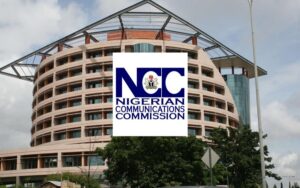
Nigeria’s crumbling public education system
Nigeria’s public primary education system is in a dire state, suffering from years of neglect and mismanagement. Without immediate intervention, the situation will only deteriorate further, placing the future of millions of children at risk.
Across the country, public schools are crumbling. Many lack essential infrastructure, learning materials, and adequate teacher support. Classrooms are overcrowded, furniture is scarce, and teachers—who are critical to shaping young minds—are overworked and underpaid. Despite these glaring issues, education remains a low priority for many state governments.
The Federal Capital Territory (FCT), which should set the benchmark for governance, instead serves as a stark example of failure. In Abuja’s Local Government Authority Primary School in Jijimgba, Kuje Area Council, parents recently withdrew their children due to appalling conditions. With no desks or chairs, pupils were forced to sit on the floor, while their teacher had to teach from a window due to the lack of a proper classroom.
This is not an isolated case. At LEA Primary School in Sabon Gari-Orida, Karshi—also in Abuja—over 500 children are crammed into dilapidated classrooms without furniture. The school, initially built with mud bricks by the local community, remains in ruins despite desperate calls for refurbishment.
Such conditions not only reflect poor governance but also amount to a betrayal of Nigeria’s children. Access to quality education is a fundamental right, yet millions are being denied this basic necessity.
A 2024 UNICEF report revealed that 18.3 million Nigerian children are out of school, making Nigeria the country with the second-highest number of out-of-school children in the world. Compounding this crisis is the severe teacher shortage, with nearly 195,000 teaching positions unfilled nationwide. Those who remain in the profession are often poorly paid, undervalued, and forced to work in unsafe environments.
Despite this, many state governors refuse to act. In 2024 alone, 27 states failed to provide counterpart funding to access the N54.9 billion Universal Basic Education Commission (UBEC) fund, which is meant to improve school infrastructure and teacher training. Instead, state governments continue to prioritise grandiose infrastructure projects—such as airports and bridges—while schools are left to rot.
The situation in the FCT is particularly disheartening. Under Minister Nyesom Wike’s leadership, billions have been allocated for infrastructure projects, yet education remains an afterthought. While N21 billion was spent on renovating the Vice-President’s residence, public primary schools continue to crumble.
This is a stark contrast to Wike’s tenure as Governor of Rivers State, where he implemented major education reforms. If he could prioritise schools then, why not now? The FCT, as Nigeria’s capital, should be a model for the rest of the country. Wike must urgently address school infrastructure, improve teacher remuneration, and ensure that every child has access to quality education.
Beyond infrastructure, education policies must be revitalised. Programmes like the school feeding initiative, which has been proven to boost school enrolment, should be reinstated. Nigeria must also modernise its curriculum, particularly in STEM (Science, Technology, Engineering, and Mathematics), to prepare students for the demands of a globalised economy.
The urgency of these reforms cannot be overstated. While countries like China are advancing rapidly in technology and innovation, Nigeria continues to lag behind. In 2018, only 26% of public schools in South-West Nigeria had access to computers, and the numbers in other regions were even lower.
The neglect of education is also directly linked to Nigeria’s long-standing security challenges. Uneducated youths are more vulnerable to recruitment by terrorist groups, bandits, and criminal organisations. Girls, in particular, face an increased risk of early marriage and child labour due to the failure of the education system.
The time for rhetoric is over—Nigeria needs action. State governors must take inspiration from Edo State Governor Godwin Obaseki, who declared a state of emergency on education after recognising the crisis in his state. Other governors must do the same: assess school conditions, invest in modern facilities, provide incentives for teachers, and revive free primary education.
This is not an impossible task. Many of Nigeria’s elite leaders once benefited from free public education, yet they have allowed the system that shaped them to collapse. Today, they send their children abroad for schooling while the schools they once attended fall into ruin. This hypocrisy must end.
Education is the cornerstone of national development. Nigeria cannot achieve sustainable progress without a functional, inclusive, and well-funded education system.
State governors and federal authorities must act now to salvage Nigeria’s public schools. The fate of the next generation—and the nation’s long-term prosperity—depends on it. The world is watching, and history will not be kind to those who fail to act.




